Products
Products
-
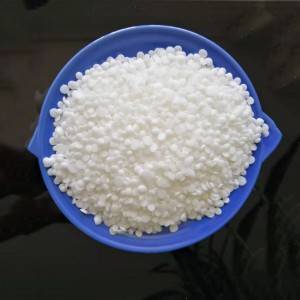
Magnesium Nitrate
Magnesium nitrate is an inorganic substance with a chemical formula of Mg(NO3)2, colorless monoclinic crystal or white crystal. Easily soluble in hot water, soluble in cold water, methanol, ethanol, and liquid ammonia. Its aqueous solution is neutral. It can be used as a dehydrating agent, a catalyst for concentrated nitric acid and a wheat ashing agent and catalyst. -
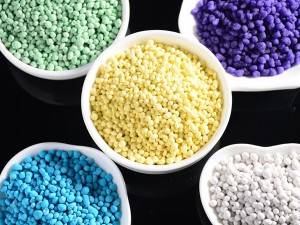
NPK fertilizer
The advantage of compound fertilizer is that it has comprehensive nutrients, high content, and contains two or more nutrient elements, which can supply the multiple nutrients needed by crops in a relatively balanced manner and for a long time. Improve the effect of fertilization. Good physical properties, easy to apply: The particle size of compound fertilizer is generally more uniform and less hygroscopic, which is convenient for storage and application, and is more suitable for mechanized fertilization. There are few auxiliary components and no adverse effects on the soil. -
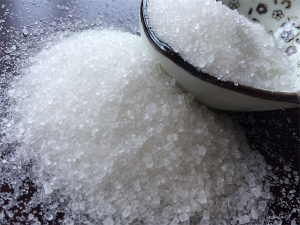
Ammonium Sulphate Capro Grade
Ammonium sulfate is a good nitrogen fertilizer (commonly known as fertilizer field powder), suitable for general soil and crops, can make branches and leaves grow vigorously, improve fruit quality and yield, enhance the resistance of crops to disasters, can be used as base fertilizer, topdressing fertilizer and seed fertilizer.Mining rare earth, mining with ammonium sulfate as raw material, using the form of ion exchange to exchange the rare earth elements out of ore. -
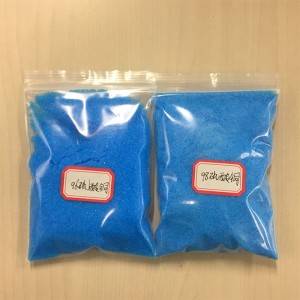
Copper Sulphate
The main purpose of copper sulfate is as an analytical reagent, for example, it can be used in biology to configure the Fehling reagent for identifying reducing sugars and the B liquid of the biuret reagent for identifying proteins, but it is usually used now;
Used as a food-grade chelating agent and clarifying agent, used in the production process of preserved eggs and wine; in the industrial field. Used in the manufacture of other copper salts such as cuprous chloride, cuprous chloride, copper pyrophosphate, cuprous oxide, copper acetate, copper carbonate, copper monoazo dyes such as reactive brilliant blue, reactive violet, etc.; -
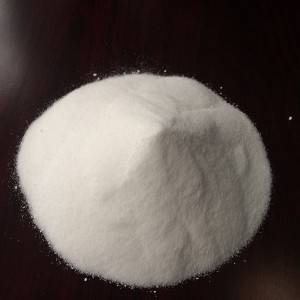
Anhydrous Sodium Sulphate
Anhydrous sodium sulfate is used to make sodium sulfide, paper pulp, glass, water glass, enamel, and also used as a laxative and antidote for barium salt poisoning. It is a by-product of the production of hydrochloric acid from table salt and sulfuric acid. Chemically used to make sodium sulfide, sodium silicate, etc. The laboratory is used to wash away the barium salt. Industrially used as raw materials for preparing NaOH and H?SO?, and also used in papermaking, glass, printing and dyeing, synthetic fiber, leather making, etc. Sodium sulfate is the most commonly used post-treatment desiccant in organic synthesis laboratories. In the chemical industry, it is used to manufacture sodium sulfide, sodium silicate, water glass and other chemical products. The paper industry is used as a cooking agent in the manufacture of kraft pulp. The glass industry is used to replace soda ash as a cosolvent. The textile industry is used to formulate vinylon spinning coagulant. Used in non-ferrous metal metallurgy, leather, etc. -
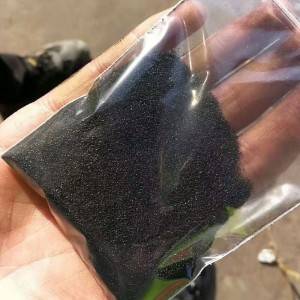
Potassium Humate
Potassium humate is a strong alkali and weak acid salt formed by ion exchange between weathered coal and potassium hydroxide. According to the ionization theory of substances in aqueous solutions, after potassium humate is dissolved in water, potassium will ionize and exist alone in the form of potassium ions. Humic acid molecules will combine with hydrogen ions in the water and release hydroxide ions at the same time, thus potassium humate solution Significantly alkaline. Potassium humate can be used as an organic fertilization. If the brown coal humate has a certain anti-flocculation ability, it can be used as a drip fertilizer in some areas where the water hardness is not high, or it can be combined with other non-acidic nitrogen and phosphorus nutrients. Elements, such as monoammonium phosphate, are used in conjunction to improve the overall use effect. Promote the development of crop root system and increase the germination rate. Potassium fulvic acid is rich in a variety of nutrients. New roots can be seen after 3-7 days of use. At the same time, a large number of secondary roots can be increased, which can quickly improve the ability of plants to absorb nutrients and water, promote cell division, and accelerate crop growth. -
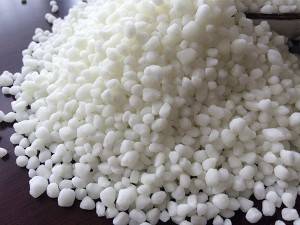
Granular-Ammonium-Sulphate
Ammonium sulfate is a kind of excellent nitrogen fertilizer, it is quite suitable for general crops, can be used as a basic fertilizer, it can make the branches and leaves growth, improve fruit quality and yield, enhance crops resistance, also be used for the production of compound fertilizer, BB fertilizer -
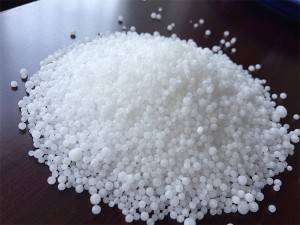
Prilled Urea
Urea is an odorless, granular products,This product has passed the ISO9001 quality system certification and was awarded the first Chinese products exempted from inspection by the state bureau of quality and technical supervision,This product has relative products like polypeptide urea, granular urea and prilled urea. -
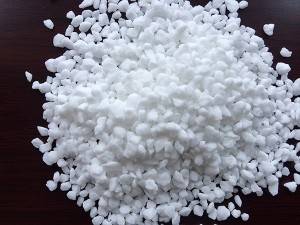
Ammonium Chloride
The feed additive ammonium chloride is refined by purifying, removing impurities, removing sulfur ions, arsenic and other heavy metal ions, adding iron, calcium, zinc and other trace elements needed by animals. It has the function of preventing diseases and promoting growth. -
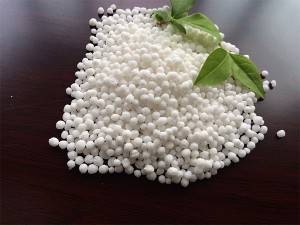
Calcium Ammonium Nitrate
The feed additive ammonium chloride is refined by purifying, removing impurities, removing sulfur ions, arsenic and other heavy metal ions, adding iron, calcium, zinc and other trace elements needed by animals. It has the function of preventing diseases and promoting growth. It can effectively supplement protein nutrition. -
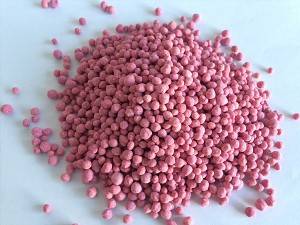
kieserite
Magnesium Sulphate as a main materials in fertilizer, magnesium is an essential element in the cloriphyll molecule, and sulfur is another important micronutrient is most commonly applied to potted plants, or to magnesium-hungry crops, such as potatoes, roses,tomatoes, lemon trees, carrots and so on.Magnesium Sulphate also can be used in stockfeed additive leather, dyeing, pigment, refractoriness, cereamic, marchdynamite and Mg salt industry. -
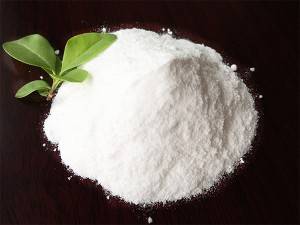
Zinc Sulfate
Zinc sulfate is also known as halo alum and zinc alum. It is a colorless or white orthorhombic crystal or powder at room temperature. It has astringent properties and is easily soluble in water. The aqueous solution is acidic and slightly soluble in ethanol and glycerin. . Pure zinc sulfate does not turn yellow when stored in the air for a long time, and loses water in dry air to become a white powder. It is the main raw material for the manufacture of lithopone and zinc salt. It can also be used as a mordant for printing and dyeing, as a preservative for wood and leather. It is also an important auxiliary raw material for the production of viscose fiber and vinylon fiber. In addition, it is also used in electroplating and electrolysis industries, and can also be used to make cables. Cooling water in industry is the largest consumption of water. The cooling water in the closed circulating cooling system must not corrode and scale the metal, so it needs to be treated. This process is called water quality stabilization, and zinc sulfate is used as a water quality stabilizer here.












